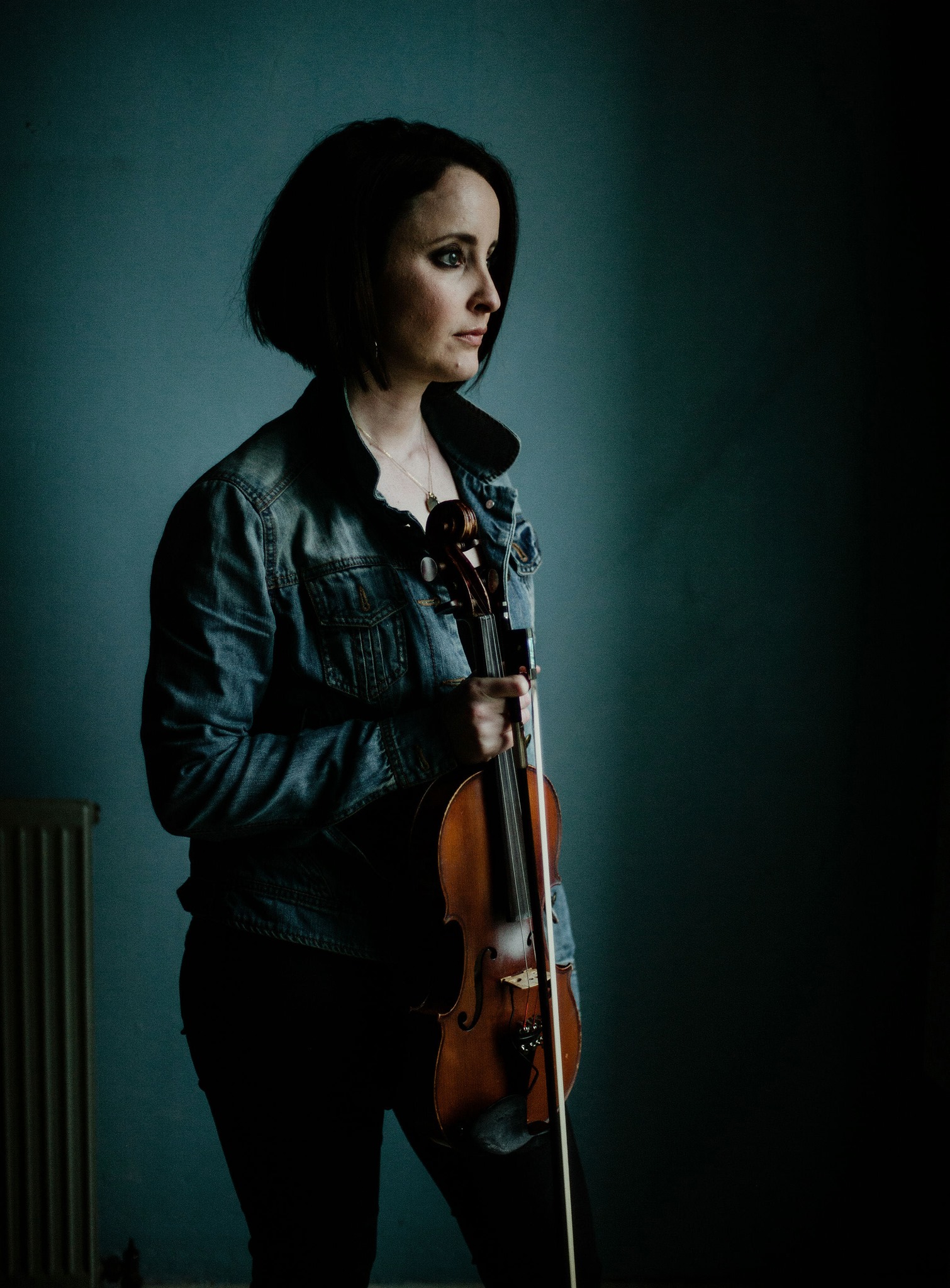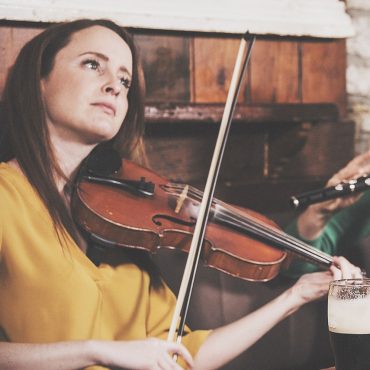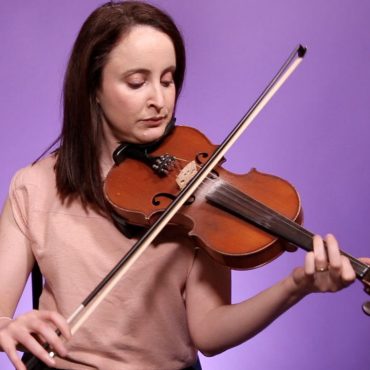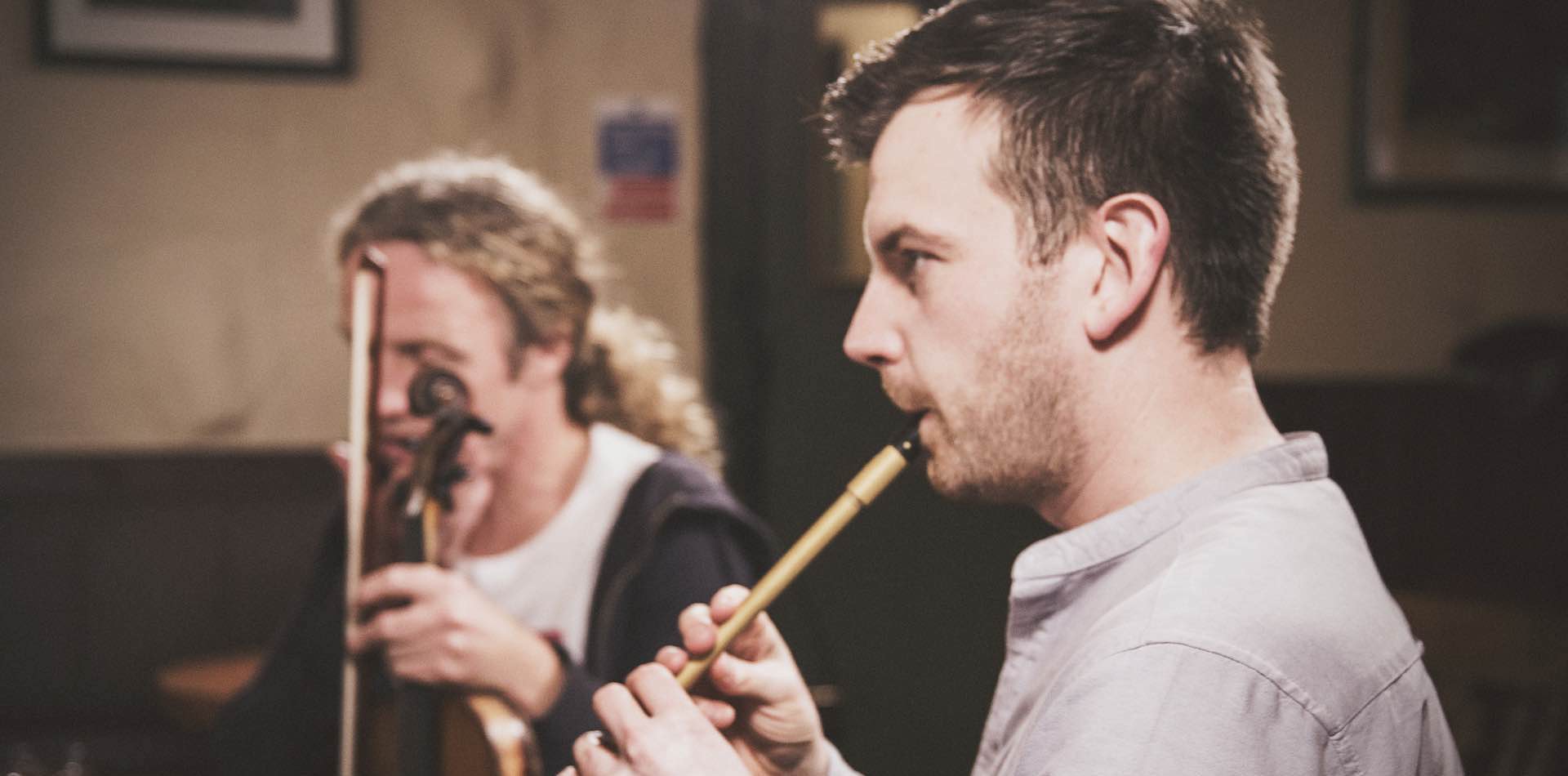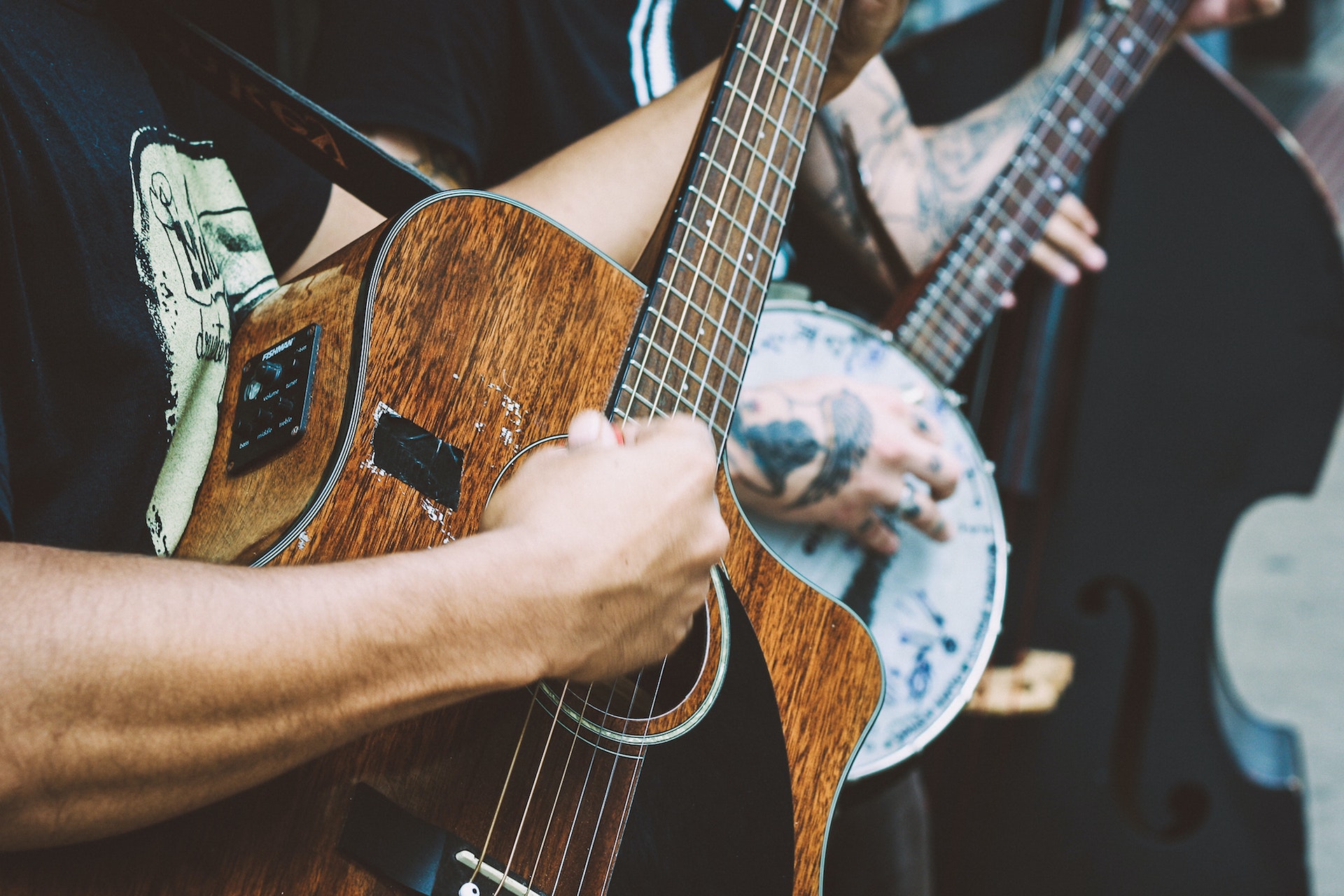The Dunnes are an important family in the history of Irish traditional music. Could you tell us a little bit about your family history?
I come from a long line of travelling musicians, mostly fiddle and banjo players. They made their living from playing music at fairs, market days, busking at football matches, and were recognised as part of the social fabric of these events in Ireland. My Dad is a piper, so he sort of bucked the trend of the stringed instruments! The Travellers were really important to the Irish music tradition as they kept the songs and tunes alive at a time when it wasn’t necessarily popular.

Niamh Dunne
What was it like to grow up in such a family? Were you aware of this heritage when you were young?
I was always aware and knew it was important. Music was just a very ordinary part of our lives, I probably thought every family was the same and it was a surprise to learn that not all children did their homework followed by playing the fiddle every day. I learned all my music from my Dad, he took up the fiddle when my sister and I started so we all kind of learned together.
You are a highly accomplished traditional fiddle player and classical violinist. When and how did you start both genres?
I started the fiddle at 4 and classical music at 12/13.
What are the challenges for classical violinists who are going into Irish traditional music? Have you got any tips to make the transition easier?
I find you have to unlearn everything you know to make the transition, particularly with the bowing; it’s a completely different technique, The best advice I can give is listen, listen, listen; immerse yourself in the music and the swing will come.
You’ve been a member of the band Beoga for many years, with whom you have toured the world extensively, been shortlisted for a Grammy, collaborated with Ed Sheeran, etc. What makes the band so unique and successful in your opinion?
We always keep things interesting for ourselves and I think that’s why we keep on. The most important thing is to be excited creatively by the music we are playing. We also get on pretty well which makes it a lot easier after 20 years!

Niamh Dunne playing with Ed Sheeran at the Billboard Music Awards Dublin 2018
Niamh Dunne playing with Ed Sheeran at the Billboard Music Awards Dublin 2018
Main Stage, Pyramid Stage at Glastonbury for a song with Ed. It’s a gig all musicians kind of dream of, it’s iconic.
Your brand new album “Tides” is your first album to feature your own songs exclusively. Could you tell us about your journey as a songwriter and how it led to this album?
I applied for a grant over lockdown to start songwriting with John Spillane. I didn’t get the grant but John said we should just do it anyway. He was a real guiding force in my journey as a writer and gave me so much help, inspiration and courage. After a year of writing solidly I decided I should put them out into the world and here we are. I have some really interesting family connections and that was where it all began; I wanted to tell/sing their stories.
What are the themes that inspire you as a songwriter?
I have been really inspired by Celtic mythology recently and use the stories and characters a lot as a means to tell stories or talk about certain issues. The tales can also echo current issues or themes and it is a really interesting creative approach to use the stories to touch on other things like grief, feminism, connection.
The first single from your upcoming album is the beautiful song “The Raven”, which was inspired by Celtic mythology. What are the origins of the song more specifically?
“The Raven” draws on traditional song in its makeup and was inspired by Celtic mythology and Folklore. It loosely tells the story of The Morrigan and Cú Chulainn. The Morrigan is the Celtic Goddess of War, a triple Goddess, the Queen of Death and Destiny. She is a shapeshifter and here takes the shape of a Raven who ultimately forewarns Cú Chulainn that he will be slain in battle. The warrior pays no heed, and when The Morrigan shape-shifts into an old woman and washes his armour in the sea his fate is sealed.
How do you balance your roots as a traditional musician and a more contemporary approach in a band setting or as a singer/songwriter?
My roots are in traditional music and I am a folky at heart but I have been influenced by loads of other genres. As a band Beoga have never shied away from leaning into modern comtempory styles and I am pretty comfortable just going with my gut and exploring different types of musical avenues. Why not? That’s the beauty of creativity; there’s space for everyone to do their thing.
Do you find it easier to express your feelings and emotions with a fiddle or with words?
It’s much more vulnerable to sing; you have nothing between you and a listener except the voice which is just so much a part of you that it is impossible not to feel it in a really deep way. I don’t think it’s easier necessarily, if anything it can be more difficult to put yourself out there like that.
What are your plans after releasing your new album “Tides”?
I’m hoping to do some gigs with it. Beoga are starting a new album in October so I’ll be busy cracking on with that.
And finally, could you recommend three recordings by Irish artists to our community? Maybe a traditional recording, another by a contemporary band and another by a singer/songwriter?
Brian Finnegan – Hunger of the Skin
Foy Vance – Signs of Life
Pauline Scanlon – The Unquiet


